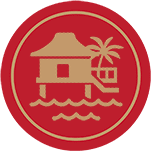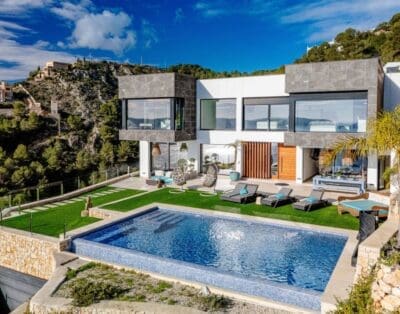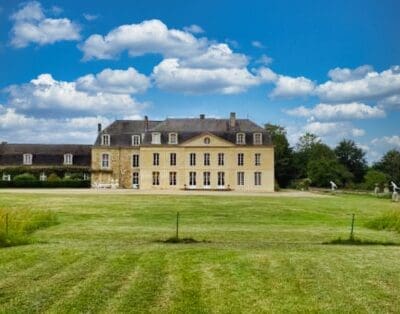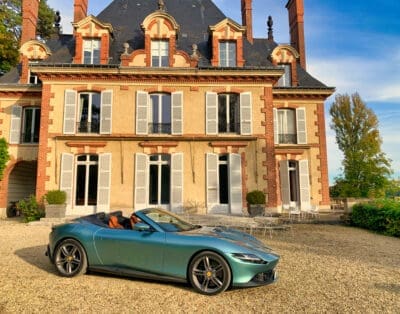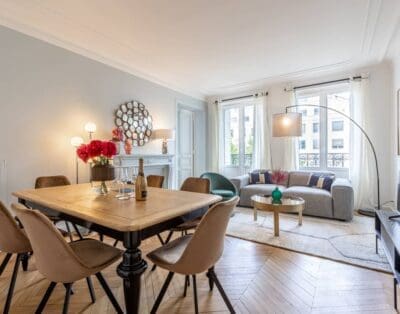Leeu Estates in South Africa are a Wine Connoisseur’s Dream
Bedtime and afternoon reading by the pool and spa lily pond at the luxurious Leeu Estates in South Africa’s culinary capital, Franschhoek, was “Moments of Mindfulness”, an anthology of African wisdom collected and curated by Danielle and Olivier Follini.
It was left in my room. And it left a lasting impression.
Like the five-star, Western Cape Province hotel, it calmed the senses and prepared the soul to receive simple teachings. As taught by Africa and Africans. Relax. Don’t fret. Keep a cool heart and remain patient.
And as Booker Man Prize-winning Nigerian novelist Chinua Acheda said: “We do not pray to have more money but to have more kinsmen.”
And, according to a Liberian Bassar tribe saying “ If you are rich and not generous, it as if you had nothing.”
My next-door neighbour in South Africa was Sir Richard Branson. And the landlord of my hotel in the Cape Winelands admitted he also owned an 11-bedroom house in St George’s Hill in Surrey. His next-door neighbours are Sir Cliff Richard, the CEO of Vodaphone and former CEO of BUPA.
Self-made entrepreneur and industrialist, Aniljit “Bas” Singh, one of India’s richest men, owns the 247 acres $500 a night “Leeu Estates” in Franschhoek, an hour from Cape Town. It is part of the “Leeu Collection” (in Sanskrit Singh means lion, which is “leeu” in Afrikaans) which comprises three five-star boutique properties: Leeu Estates – a 17-room country house and boutique winery, a 12-room restored nineteenth-century Dutch manor Leeu House and the 32-room Le Quartier Français “auberge”. All in a valley between the Kleindrakenstein and Dassenberg Mountains.
Bas Singh also owns Linthwaite House, a stylish 36-room country retreat overlooking Lake Windermere in England’s Lake District. He plans to open other properties in Florence and London. He first visited South Africa in 2010 to watch the football World Cup with Piya, his soccer-mad daughter.
Bas helps disadvantaged winelands children and distributes muffins to them every week from the Leeu kitchen. He is also behind the local “Kusasa Early Learning Centre Project”. For Singh “sharing is caring”. “The Max India Foundation” is well known for its social work in India.
“I am an avid ambassador of South African wines and once served some to the French President. And have a photo as proof!”
Three farms – Dieu Donne, Klein Dassenberg and Von Ortloff- created the Leeu Estates. Viticulturist Rosa Kruger oversaw the Four Quarter vineyards.
You can go on walks by the river Berg through the hotel’s Four Quarter vineyards, Francesca Watson gardens and sculptures (not art installations) by Deborah Bell, Otto du Plessis, Guy de Toit and Angus Taylor escorted by the knowledgeable assistant farm manager, Johann Moolmann. Afterwards in the estate’s exclusive wine studio, you can sample the local award-winning wines of Andrea and Chris Mullineux with a man called Admire. The tasting room showcases the estate’s own label, Leeu Passant.
In heraldry, “Lion Passant” is a walking or roaming Lion. Leeu adopted the name because Bas and his wine team roamed the vineyards of the Cape looking for the best grapes. The Leeu Passant wines celebrate the rich history of South African wine. Using the Cape’s wine heritage dating back to the 17th Century as inspiration, Leeu deconstructed Cape wines of the 1950s, 1960s and 1970s, retained their best component parts, and then reconstructed them in a modern way.
You learn to call Chenin Blanc “Steen”. To appreciate the finer nuances of Swartland wines, try to detect the nose of sun-ripened pears and wet granite in Kloof Street and the subtle tannins of single terroir “Schist” Syrah. You taste the difference soils can make in “Old Vines White”. Shale is an acquired taste.
The history of South African wine goes back to the Dutch East India Company supply station at the Cape of Good Hope. In 1689 Jan Van Riebeeck planted “Rheingau” and “Hanepop” ( Muscat) grapes to stave off scurvy among sailors on the spice route. In 1685 Cape Governor Simon van der Stel purchased the Groot Constantia estate. French Huguenots arrived in 1688 and brought their viniculture with them. South African wines were served to Napoleon in exile on St Helena. Louis XVI allegedly preferred them to Bordeaux wines. After phylloxera decimated the vineyards in 1866 Californian rootstock was brought in. But, not until the end of apartheid did South African wine find itself back on the oenological map. Grapes were mainly used for brandy.
Guided wine tasting at Leeu is a good introduction to oenology.
“The Conservatory” and gourmet “Le Chene” (Oaktree) restaurants offer slippery Jack and leek ash aged dusted venison loin, Saldanha oysters, Karoo lamb neck, sustainably farmed Kabeljou (fish) and foraged porcini cured springbok tartare.
A five-minute complimentary shuttle ride away to downtown Franschhoek ( “French Corner”, the former “Le Coin Francais”) on Huguenot street is Leeu’s “Tuk Tuk Micro-brewery.” Aided by Darren, Brennan, Marlene and Vernal, you will be introduced to “Cape Brewing Company” beers as well as the in-house banana-toned “Weizen” wheat beer and the chocolate and caramel “Dunkel”. You also learn, if you did not know already, that lager is German for “storing”.
If beer, wine and good food don’t relax you, kick back in the sunshine by the infinity pool back at Leeu or mellow out in the nail salon and spa with a plunge pool. Get expertly coated in “TheraNake” African recharge oil, “Esse” age-defying products and “Almona Botanica” volume and bounce shampoo after an invigorating and very Ayurvedic exfoliating and re-hydrating sustainably-grown pomegranate seed seeing to.
Treatments include “I Am Mindful” ( mood-balancing African warm soy back and scalp rubs), “I Am Virtuous“ (muscle release mud wrap and miracle marula oil exfoliation ) and “I Am Majestic” (crushed apricot kernel and mafura butter scrub).
The best way to see South Africa’s famous wine valley is by rail on the wine tram – a balconied double-decker coach modelled on the UK’s Blackpool trams. The tracks were laid by fruit farmers in 1904 and now connect twenty of the fifty wine estates in Franschhoek settled by the Huguenots in 1688. The valley is littered with Cape Dutch vernacular farmhouses. The town is one of the oldest settlements in the Republic. It has a small Huguenot museum and a Huguenot monument. Farms have been named “Champagne”,”La Provence” and “Bourgogne”.
A day pass on the 5-metre tall trams, modelled after the 1923 Blackpool Corporation Tramways of north-east England, costs $20. The Orange, Purple, Blue, Green and Yellow lines take you to olive and cheese as well as wine tastings at some of South Africa’s best and oldest wine estates, such as Leopard’s Leap, Rickety Bridge and Mont Rochelle. All have excellent restaurants.
Bas Singh’s Leeu Collection offers “unrivalled, sophisticated escapes and unique guest experiences”.
After a stay at one of his places and a visit to the culinary capital of South Africa, it’s easy to stumble over pronouncing the word Stellenbosch and give up before you even start trying to remember the region’s first agritourist co-operative was the tongue-twisting Wijnbouwers Vereniging van Zuid-Afrika Beperkt.
KWV for short.
https://www.leeucollection.com
